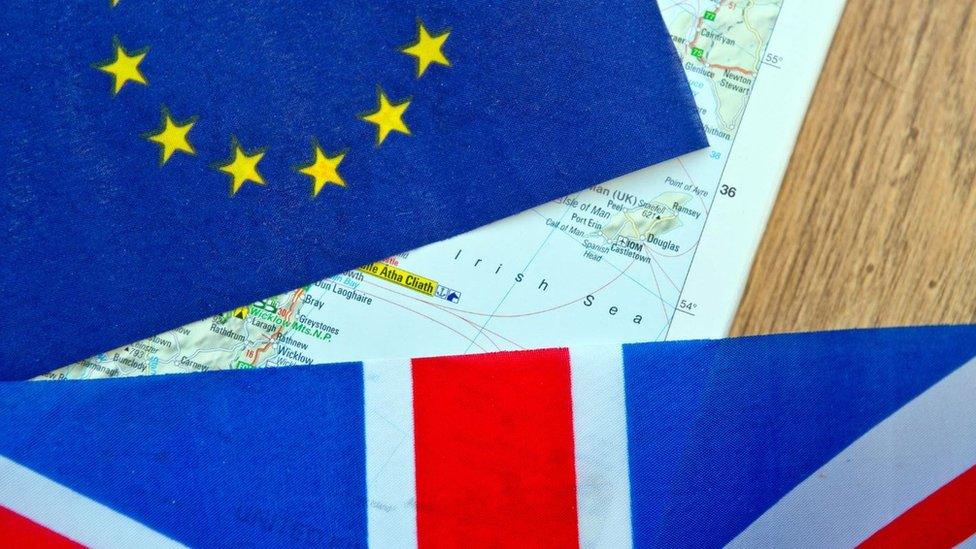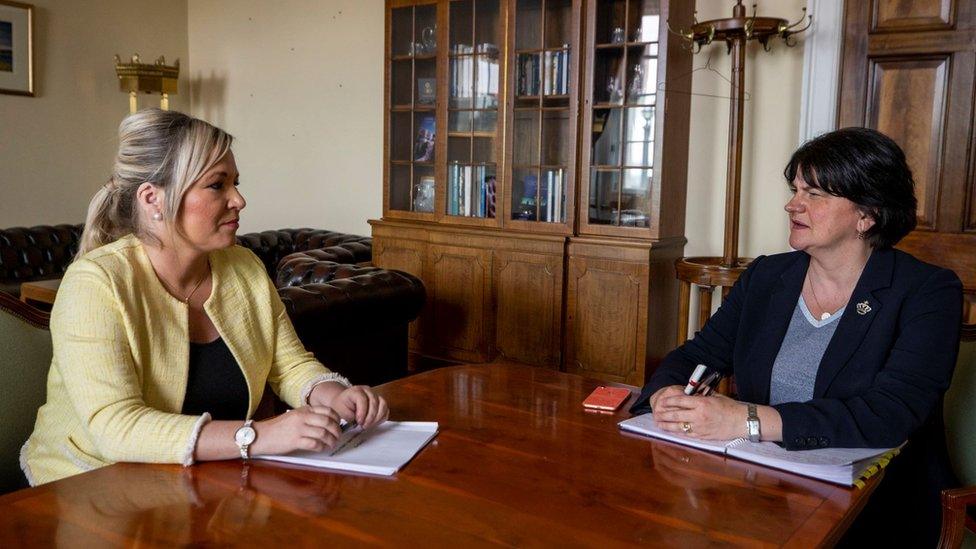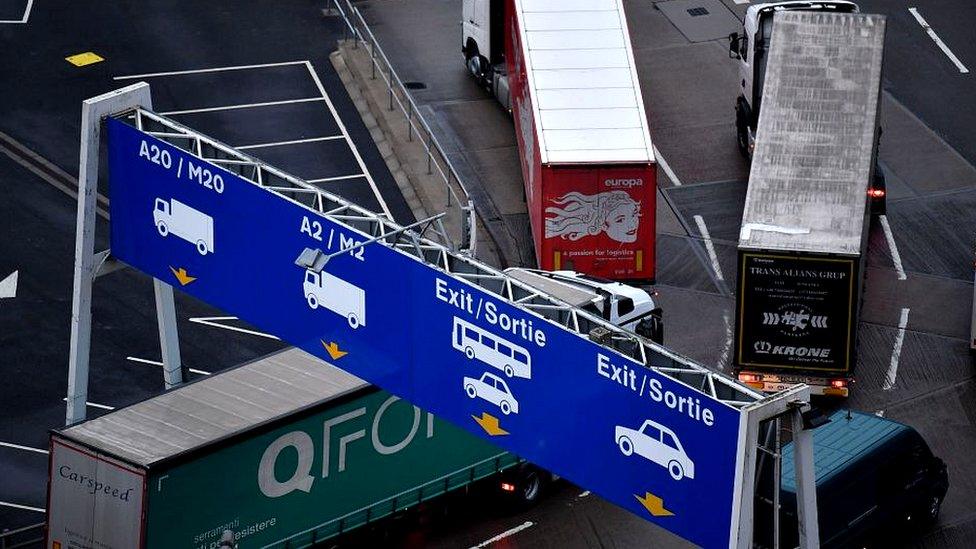Brexit: No extension is no surprise, says Foster
- Published

Brexit is expected to happen on 1 January 2021
The UK's decision not to seek an extension to the Brexit transition period is "no surprise", NI's First Minister Arlene Foster has said.
Her comments came after Deputy First Minister Michelle O'Neill said the move was "shameful" given the economic shock caused by Covid-19.
The decision was announced on Friday by cabinet minister Michael Gove after a meeting of a joint UK/EU committee.
Mr Gove said Brexit would happen on 1 January 2021.
Both Mrs Foster and Ms O'Neill took part in the committee meeting remotely.
However, Ms O'Neill later pulled out of a separate Brexit conference call on Friday evening with Cabinet Office minister Penny Mordaunt.
Government ministers from Scotland and Wales also refused to take part in the discussion and they issued a joint statement describing the decision not to seek an extension as "reckless".
They also said the UK government had "simply dismissed" the views of the devolved governments.
'Complete disregard'
In an earlier statement, Ms O'Neill said she had "made clear today that it is obvious that the EU does not feel sufficient progress has been made by the British government on implementing its protocol obligations".
"It is completely careless and shameful for the British government not to seek an extension to the transition period and it shows complete disregard for our local economy, which is facing a huge shock as a result of the Covid-19 pandemic."

Michelle O'Neill and Arlene Foster are on opposite sides of the Brexit debate
However, speaking to Irish broadcaster RTÉ, Mrs Foster said it was no surprise the British government had stuck to its stated position.
"That was the position they were elected on last December, that they would get Brexit done, that there wouldn't be any extensions," she told RTÉ News.
"I've been saying that talking to colleagues in the executive for quite some time. So, not really surprised, I think what we really need to see happening now is clarity for our businesses."
Confused by Brexit jargon? Reality Check unpacks the basics.
On Twitter, Arlene Foster said she had used the meeting to remind people that the whole of the UK was leaving the EU, including Northern Ireland.
Speaking to reporters earlier on Friday, Mr Gove said he would not be seeking an extension to the transition period.
"We will not be extending, that's it," he said.
"We will leave the transition period on December the 31st. That provides clarity and certainty to business."
He added: "Some people will accuse me of being dogmatic… to me it seems perfectly sensible that business needs clarity and certainty."
When asked about the accusation by the Scottish and Welsh first ministers that he was being "reckless", Mr Gove said: "If we extend the transition period we would be paying the EU more money - millions of pounds that we can spend on the NHS, we would be subject to new EU laws..."
The vice president of the European Union Marcos Sefcovic said: "The UK government published a command paper setting out its approach for fulfilling its obligation under the protocol, the publication of this paper was welcomed by the EU side as an important step in reflecting the commitment of the UK authorities in the implementation of this protocol."
He went on to clarifying however that "this paper does not provide sufficient operational details, and we need to move from aspiration to operation and fast".
More discussions between the EU and the UK are planned.
- Published12 June 2020

- Published11 June 2020